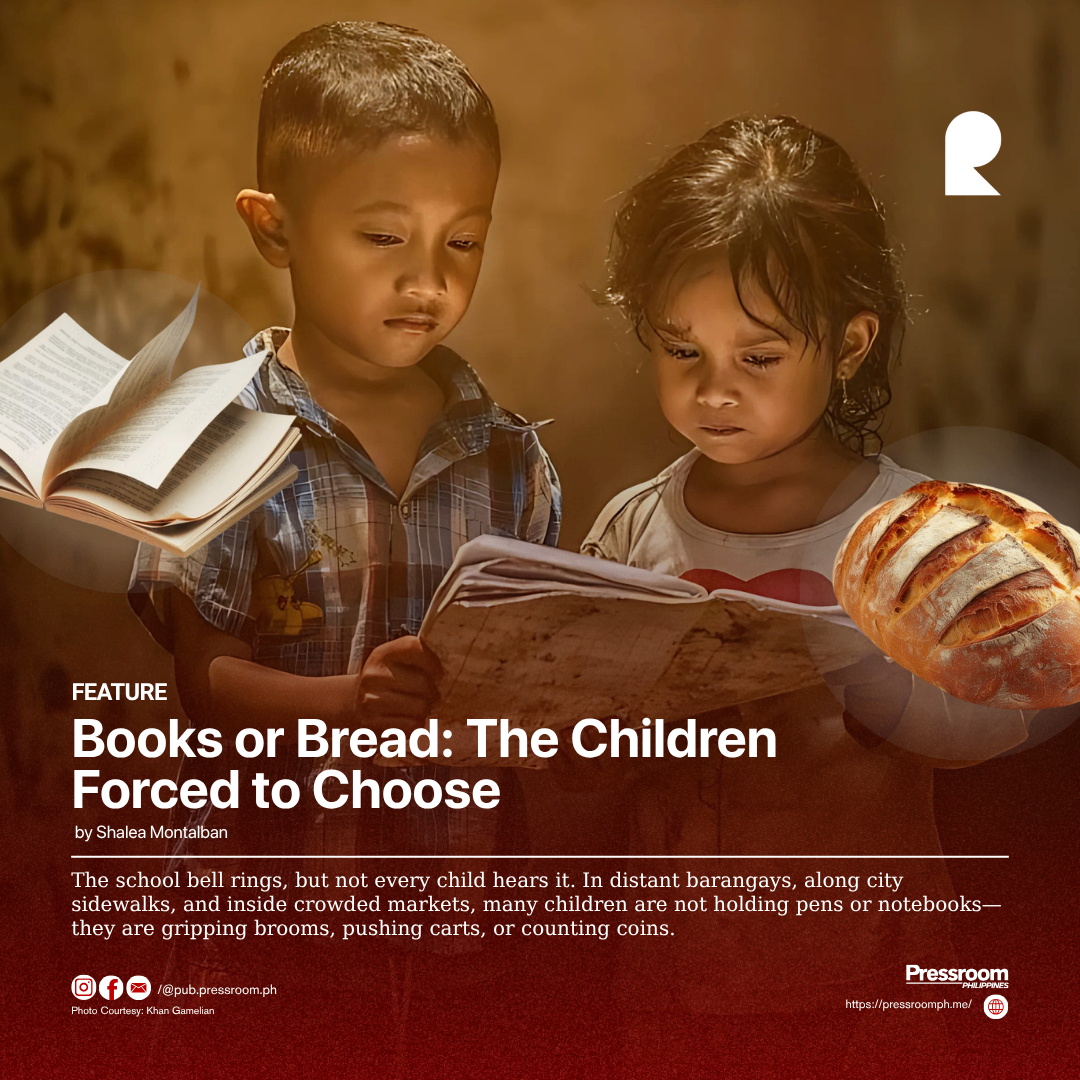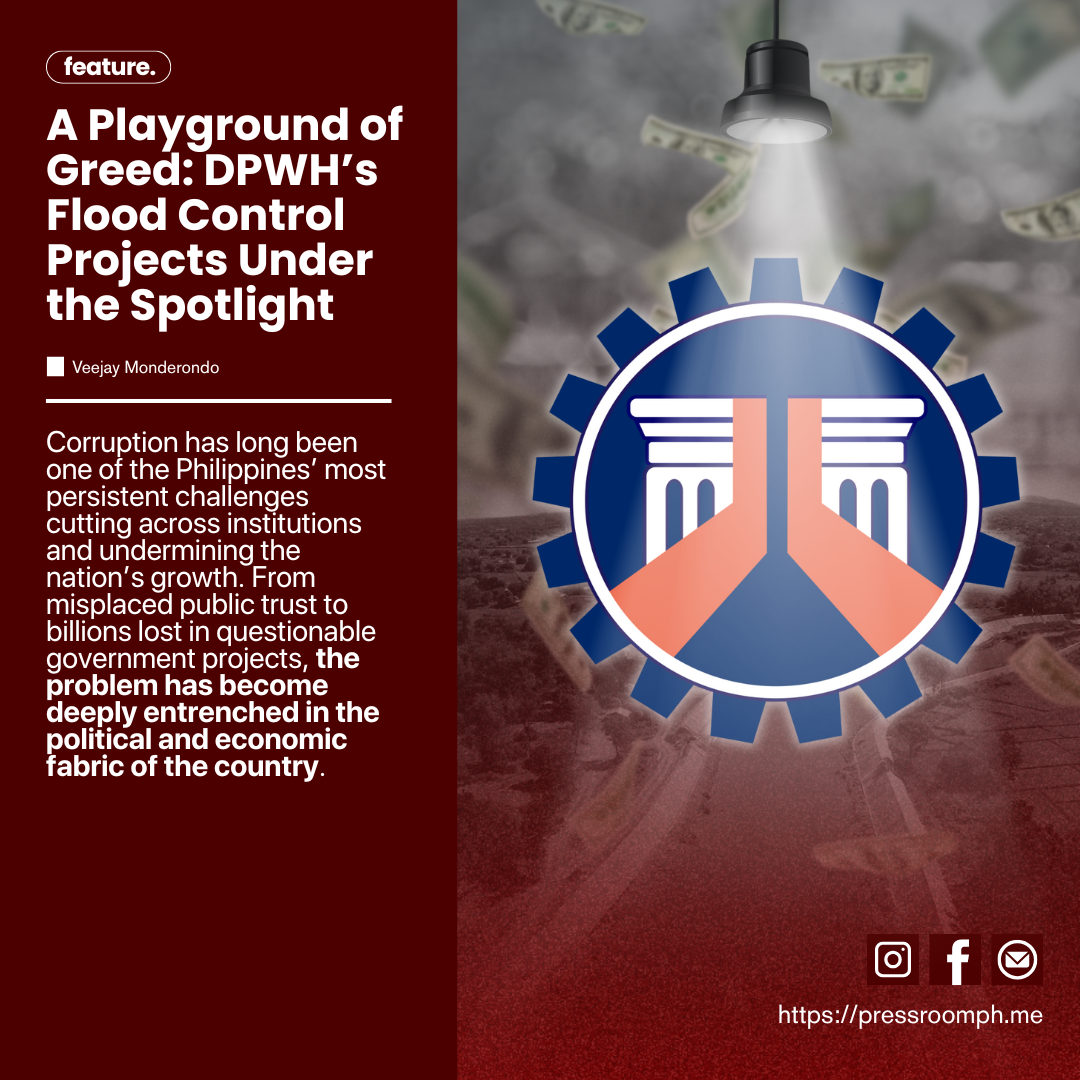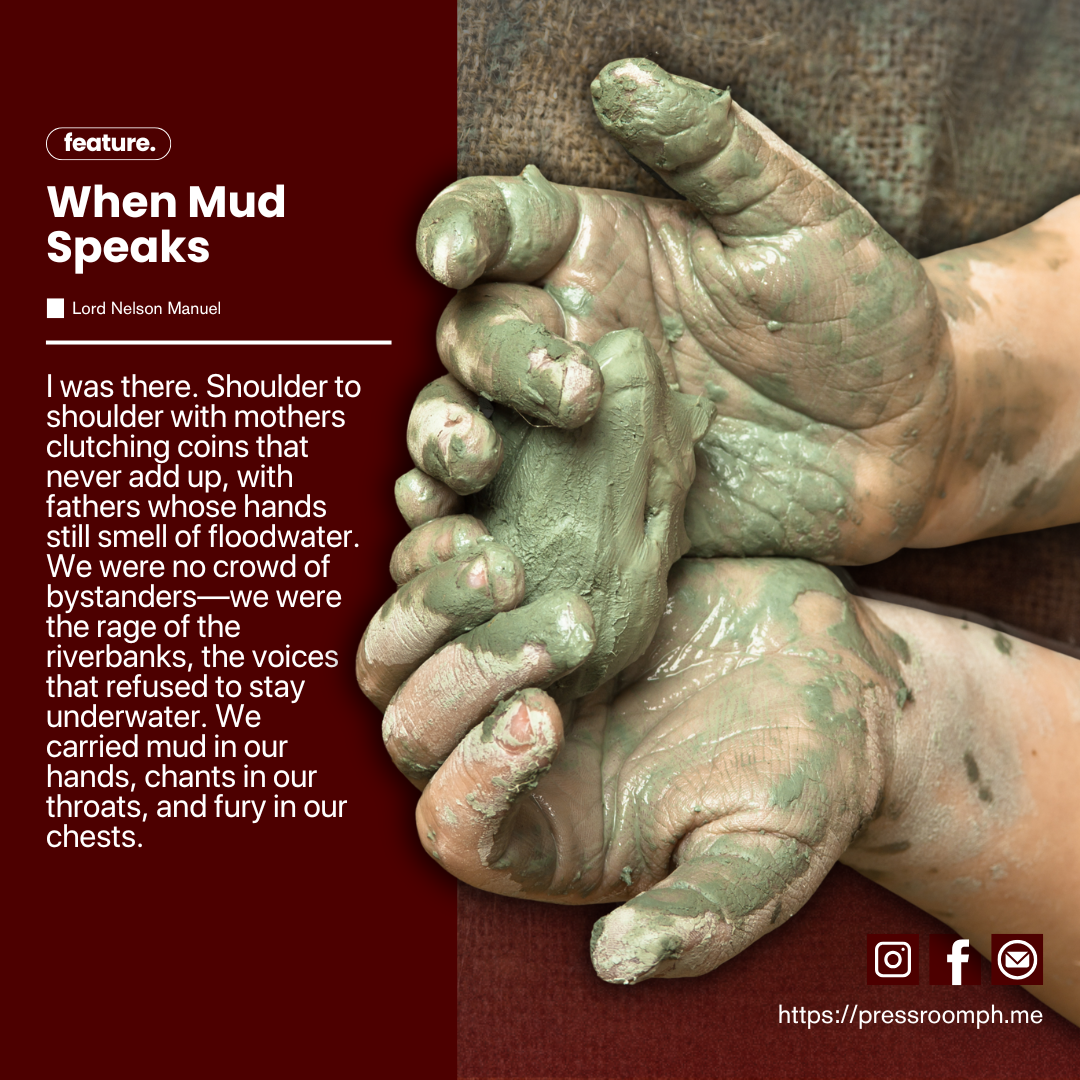𝘃𝗶𝗮 𝗦𝗵𝗮𝗹𝗲𝗮 𝗠𝗼𝗻𝘁𝗮𝗹𝗯𝗮𝗻, 𝗣𝗿𝗲𝘀𝘀𝗿𝗼𝗼𝗺 𝗣𝗛
The school bell rings, but not every child hears it. In distant barangays, along city sidewalks, and inside crowded markets, many children are not holding pens or notebooks—they are gripping brooms, pushing carts, or counting coins.
In the Philippines today, poverty is more than just an empty stomach. It is a powerful thief, quietly stealing what every child deserves: a chance to learn, to grow, and to dream.
Child labor, born from poverty's cruel demands, has become a painful reality. It forces young hands to work when they should be writing essays or solving equations. It turns playgrounds into workspaces and textbooks into luxuries. When there is not enough money for rice, education is often the first thing to go.
Children, some as young as eight or nine, are made to carry adult burdens. From selling snacks in traffic to helping in fields under the sun, their time is no longer theirs. School becomes a faraway place—one they used to go to, or one they’ve only heard about. And slowly, the future they once imagined begins to fade.
Yet this is not just a rural story, nor is it confined to slums. This is a national crisis. When millions of children are taken out of school and pushed into labor, we are not just failing them—we are weakening our country’s future.
Yes, there are programs. Yes, there are policies. But for as long as poverty stays planted in communities, child labor will keep growing like weeds in the cracks.
The question is simple: should a child be forced to choose between books and bread?
The answer must be louder than poverty's grip. It must echo in classrooms, in homes, in government halls. Because every child deserves to hold both: a book in one hand, and food in the other—not one or the other.






